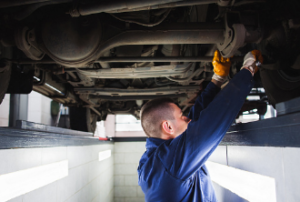Dyno tuning sessions can help fine-tune a vehicle and increase power, torque, economy and efficiency. Before embarking on any such session, all mechanical aspects must work efficiently.
Open communication with a calibrator/tuner regarding what you wish to achieve from your car is always advised. Some important dyno tuning Adelaide considerations when discussing what is desired include:
Know What You Want
 Many vehicle manufacturers typically tailor their vehicles for general types of drivers; this limits how you can drive them and their performance capabilities. Dyno tuning enables you to improve these capabilities by altering fuel-to-air ratio settings or adding power upgrades that make your engine more responsive and driveable.
Many vehicle manufacturers typically tailor their vehicles for general types of drivers; this limits how you can drive them and their performance capabilities. Dyno tuning enables you to improve these capabilities by altering fuel-to-air ratio settings or adding power upgrades that make your engine more responsive and driveable.
Dyno tuning Adelaide can also effectively solve engine issues like poor drivability, pinging or hard starts. Dyno testing helps identify these issues quickly and provide solutions to remedy them permanently.
Before embarking on any dyno tuning session, you must set clear goals. Being open and honest with your calibrator/tuner about your goals will allow them to better assist with reaching them; knowing both hardware and fuel quality limitations can also prove helpful.
Make Sure Your Vehicle Is Ready
A chassis dyno can provide invaluable insight into your engine’s performance. However, a dyno cannot diagnose all mechanical problems; for instance, if your car is overheating due to poor cooling system design or running lean due to incorrect air/fuel ratio settings, it cannot make improvements until these issues have been addressed and resolved.
Your vehicle should also be prepared for the dyno, primarily if you use high-octane fuels. It is particularly important if any aftermarket blow-off valves or catch cans were improperly installed – these could cause false knock, making setting spark timing harder.
Bring Spare Parts
Dyno tuning your American Muscle luxury car can unlock its potential and give it the performance boost you crave.
Your car’s performance on a dyno requires running on rollers rather than road tires, so ensure all hoses and belts are in good condition. Weak or damaged belts could break on the dyno, leading to serious complications for your vehicle.
Poor battery or alternator performance can create issues with fuelling and ignition, so having extra spare parts on hand will save time, money, and frustration on the dyno. Be sure to bring replacement spark plugs, ignition coils, oil, coupler clamps, and tight seals to prevent boost leaks common on forced induction cars.
Know What to Expect
Dyno tuning Adelaide may not come cheaply, but it could be one of the smartest investments you can make for your car. To maximise its effectiveness on the dyno, prepare your vehicle well in advance.
Dyno tuning can be done on both old and new cars, and it can improve the efficiency of both gas and diesel engines. That is because a properly tuned engine will use less fuel and create fewer pollutants. It will also work less hard to achieve the same amount of horsepower and torque, reducing wear and tear on internal components.
A dyno is an engine analyser that measures the power of a vehicle at various speeds. A dyno can be used to tune engines, as well as transmissions and axles. The equipment is a vital tool for anyone who wants to maximise their vehicle’s performance. The dyno can also be used to monitor an engine’s health and prevent costly repairs down the road.
There are several different types of dynos, and each has its advantages. An engine dyno uses a large drum that the vehicle drives on. By accelerating and decelerating the drum, the dyno can measure the amount of power being produced.
Chassis dynos are similar, but they measure the power that is being transferred to the wheels. These dynos are better for street vehicles that may be driven at low speeds. A dyno can also be used for testing performance parts, such as nitrous oxide kits or aftermarket exhaust systems. The Automotive Technology program at Universal Technical Institute uses a chassis dyno to teach students about automotive performance.